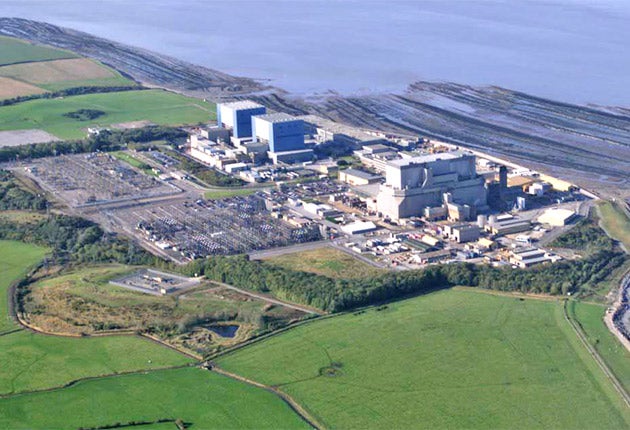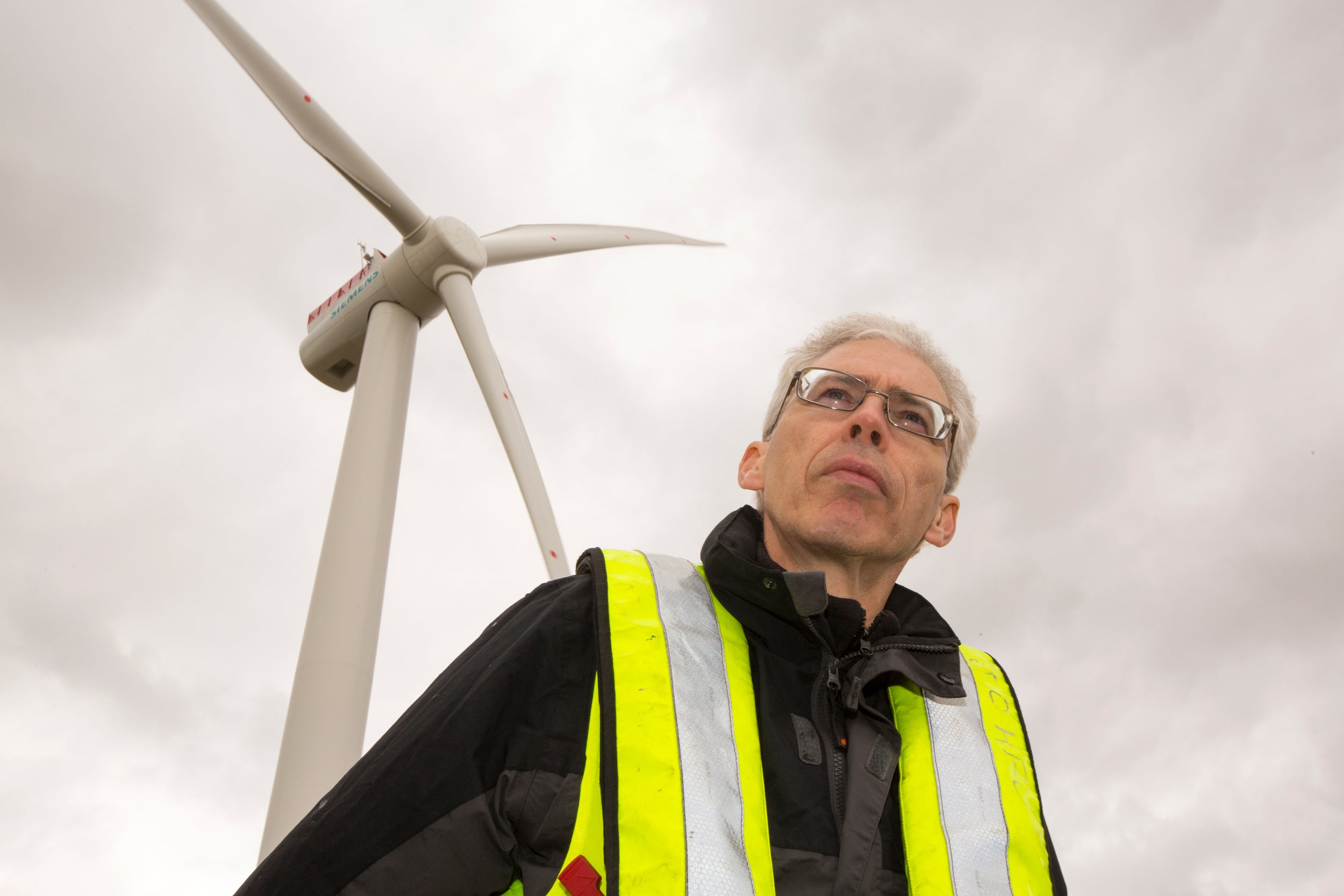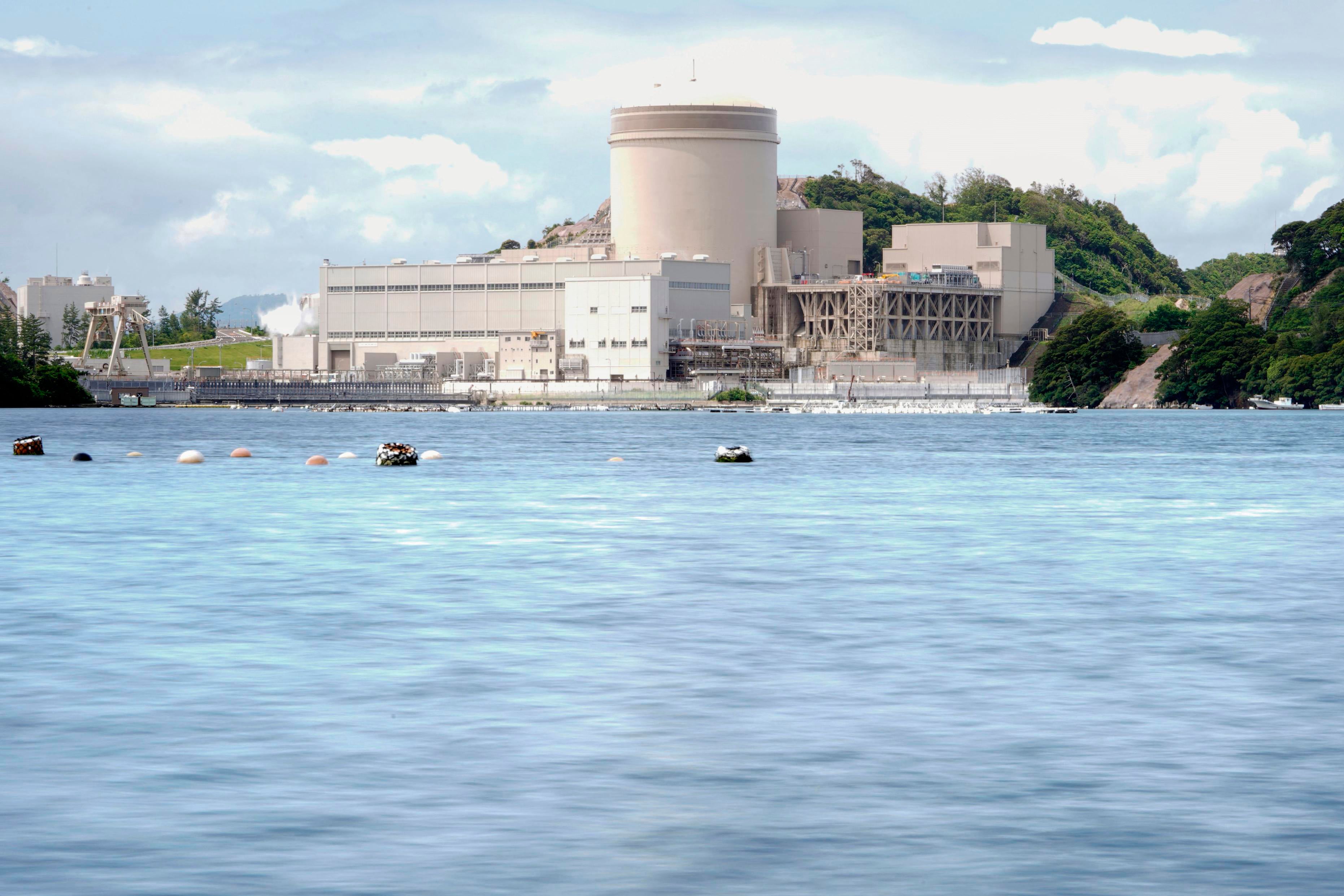Can nuclear power save the planet?
The race is on to replace fossil fuels as the climate crisis deepens.

Earlier this week parts of London saw rainfall so intense that one month’s-worth of water plummeted from the sky in just over an hour.
The alarming regularity of deadly extreme weather, from US and Siberian wildfires to flooding in Belgium and Germany, is a grim reminder of the need for low-carbon energy.
Nuclear power plants have been put forward as an alternative to fossil fuel-powered plants because they produce no greenhouse gas emissions during operation.
However, opponents of nuclear power say the safety concerns and high cost of nuclear power has rendered it obsolete in the face of renewable energy like solar and wind.
The arguments for:
Over the course of a plant’s life-cycle, nuclear produces about the same amount of carbon dioxide-equivalent emissions per unit of electricity as wind, and one-third of the emissions per unit of electricity when compared with solar, according to the World Nuclear Association.
The organisation also claims nuclear power is reliable and can be deployed on a large scale, so it can directly replace fossil fuels for electricity generation.
It adds: “All technologies that can contribute towards solving one of the greatest challenges faced by humankind should be deployed. We cannot afford to wait, as the impacts of climate change will hit the poorest and most vulnerable first and failing to act will have significant humanitarian consequences.

“Nuclear energy has shown that it has the potential to be the catalyst for delivering sustainable energy transitions, long before climate change was on the agenda.
“France generates over 70% of its electricity from nuclear power – the largest nuclear share of any country globally – and its electricity sector emissions are one-sixth of the European average.
“In around 15 years, nuclear power went from playing a minor role in the French electricity system to producing the majority of its electricity, showing that nuclear energy can be expanded at the speed required to effectively combat climate change.”
Many proponents of nuclear power also cite the uncertainty of renewable energy’s reliance on the right type of weather to generate power, although critics say this can be countered with energy storage and distribution technologies.
The arguments against:
Greenpeace claims nuclear power is incredibly expensive, creates huge amounts of hazardous waste, and is slow to build, while renewable energy can slash emissions cheaper and quicker.
The environmental organisation cites the UK’s new Hinkley Point C reactor, which could cost over £25 billion by the time it’s finished in 2025 at the earliest – eight years behind schedule.
Even without accidents like Chernobyl and Fukushima, nuclear power creates radioactive waste at every stage of production, including uranium mining and reprocessing of spent reactor fuel, Greenpeace adds. Some of this waste will remain dangerously radioactive for hundreds of thousands of years, yet nobody knows of a way to safely store it so problems aren’t created for future generations.
Greenpeace policy director, Doug Parr, told the Independent: “They have been trying for 70 years but there is still no workable plan for nuclear waste.
“Nuclear waste must not re-emerge into the environment for a quarter of a million years.
“If we had buried nuclear waste under the Great Pyramid of Giza when it was built, just 2% of the time it needs to become safe would have passed.”

Mr Parr says terrorism and security is an added concern. He says there have been plans to attack nuclear plants and associated infrastructure by terrorists who want to create devastating ‘dirty’ bombs.
He said: “No one worries about a terrorist crashing a plane into a wind farm.”
Nuclear power is also seen as far too expensive compared to renewables. Professor Rob Gross, director of the UK Energy Research Centre, recently told Politics Home: “Individual renewable schemes, even big schemes like offshore wind farms, are relatively small and relatively cheap compared to a nuclear power station, and they’re also relatively quick to build. So nuclear power has really struggled to find finance, and is now looking expensive compared to renewables.”
Another criticism of nuclear power is that it is less reliable than in the past thanks to the climate crisis
An analysis by scientific journal Nature Energy found higher temperatures mean that natural cooling sources like rivers, oceans, and lakes are becoming less efficient heat sinks for nuclear power plants.
Meanwhile, hurricanes and typhoons have become the leading causes of nuclear outages, at least in North America and South and East Asia.
Overall, the analysis calculates that the frequency of climate-related nuclear plant outages is almost eight times higher than it was in the 1990s.
Join our commenting forum
Join thought-provoking conversations, follow other Independent readers and see their replies
Comments
Bookmark popover
Removed from bookmarks